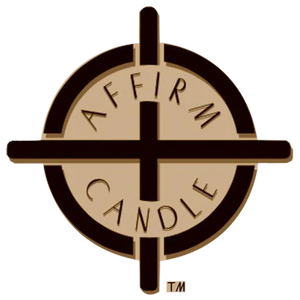Fragrance Oils vs Essential Oils in Candle Making

Fragrance Oils vs Essential Oils
Fragrance oils and essential oils are frequently utilized in candle-making to impart fragrance to the wax. However, there are significant differences between the two. Fragrance oils are artificial compounds produced in a laboratory, whereas essential oils are extracted from natural plant sources. The production of fragrance oils involves the use of chemicals and solvents, while essential oils are commonly extracted using methods like steam distillation or cold pressing.
The critical distinctions between fragrance oils and essential oils primarily stem from their chemical composition. Fragrance oils are made up of a combination of synthetic compounds that mimic the scent of natural substances. On the other hand, essential oils are composed of volatile organic compounds that are naturally present in plants. This fundamental difference in composition leads to variations in scent, potency, and overall quality.
Key Takeaways
- Fragrance oils are synthetic and offer a more comprehensive range of scents, while essential oils are natural and offer therapeutic benefits.
- Fragrance oils are cheaper and easier to work with but may contain harmful chemicals and have a weaker scent throw.
- Essential oils are more expensive and require more expertise, but they are safer and offer health benefits.
- Fragrance oils have a more significant environmental impact due to their synthetic nature, while essential oils are more sustainable.
- Essential oils are best for aromatherapy and therapeutic candles, while fragrance oils are better for decorative and novelty candles.
The Pros and Cons of Fragrance Oils in Candle Making
There are several advantages of fragrance oils in candle making. Firstly, fragrance oils provide a diverse array of scents that may not be found in essential oils. This allows candle makers to create unique and complex fragrances that appeal to a broader audience. Moreover, fragrance oils are versatile, giving candle makers more freedom to choose and mix scents, resulting in unique and exciting candle designs.
However, there are also some disadvantages to using fragrance oils. One major drawback is that they are synthetic and may contain potentially harmful chemicals. This can be a concern for those who prioritize natural and eco-friendly products. Furthermore, fragrance oils may have different therapeutic properties than essential oils, as they lack the natural compounds found in plant extracts.
The Pros and Cons of Essential Oils in Candle Making
Essential oils have become popular because they come from nature and may have healing properties. Using essential oils in candle making is great because they have a natural smell. Essential oils are made from plants and have an authentic scent, which can create a more genuine and holistic experience for candle enthusiasts.
Apart from their pleasant scents, essential oils can also have health benefits. For a long time, people have used many essential oils in aromatherapy to help relax, lift mood, and reduce stress. Please note, all essential oils are not safe for everyone.
The Science Behind Fragrance Oils and Essential Oils
Fragrance oils and essential oils have distinct chemical compositions that contribute to their unique properties. Fragrance oils are typically made up of a combination of synthetic compounds, such as aldehydes, esters, and ketones. These compounds are carefully blended to create specific scents that mimic natural fragrances.
Essential oils are made from natural plant compounds that can evaporate quickly. The compounds in crucial oils vary depending on the plant and extraction method. For example, lavender essential oil contains linalool and linalyl acetate, giving it unique properties.
The chemical composition of fragrance oils and essential oils can impact the candle-making process. Fragrance oils tend to have a higher flashpoint, meaning they require higher temperatures to release their scent. This can affect the melting point of the wax and the overall performance of the candle. Essential oils, on the other hand, may have a lower flashpoint and can be more sensitive to heat, requiring careful consideration during the candle-making process.
The Environmental Impact of Fragrance Oils vs Essential Oils
When considering the environmental impact of fragrance oils and essential oils, it is crucial to examine their sourcing and production methods. Fragrance oils are typically derived from petroleum-based chemicals and require extensive processing in a laboratory setting. This reliance on non-renewable resources and energy-intensive production methods can contribute to environmental degradation.
Essential oils are natural sources derived from plants. However, the sustainability of critical oil production can differ depending on the plant type and extraction method. Certain essential oils, such as sandalwood or rosewood, may be sourced from endangered or excessively harvested plants.
Fortunately, there are sustainable sourcing options available for both fragrance oils and essential oils. Some fragrance oil manufacturers now offer eco-friendly alternatives that are derived from renewable resources or use recycled materials. Similarly, many essential oil producers prioritize sustainable farming practices and support fair trade initiatives to ensure the long-term viability of plant species and local communities.
The Cost Comparison of Fragrance Oils and Essential Oils
The cost of fragrance oils and essential oils depends on their availability, quality, and where they come from. Typically, fragrance oils are more budget-friendly compared to essential oils. This is because fragrance oils are synthetic compounds that can be mass-produced in a laboratory setting, whereas crucial oils require the extraction of natural compounds from plants.
However, it's worth mentioning that the cost of both fragrance oils and essential oils can vary even within their categories. For instance, premium fragrance oils made with high-quality ingredients or distinctive scent blends might be pricier than standard options. Likewise, rare or exotic essential oils may also come at a higher price point due to their limited availability.
The Safety Considerations of Using Fragrance Oils and Essential Oils in Candle Making
When using fragrance oils and essential oils in candle making, it is crucial to consider potential health risks and take appropriate safety precautions. Fragrance oils might include synthetic chemicals that have the potential to trigger skin irritation or allergic responses in specific individuals. Therefore, it is crucial to thoroughly review product labels and opt for fragrance oils that are explicitly labeled as skin-safe or hypoallergenic to minimize the risk of adverse reactions.
Similarly, essential oils can also pose health risks if not used properly. Some essential oils have a reputation for being skin irritants or may lead to sensitization with repeated use. For instance, citrus oils are known to potentially heighten the risk of sunburn or skin damage when applied directly to the skin. It's important to be aware of these factors and consider them when incorporating essential oils into your skincare routine. It is necessary to dilute essential oils properly and follow recommended usage guidelines to ensure safe candle making.
To minimize potential health risks, it's advisable to wear gloves and protective clothing when you work with these oils. Adequate ventilation is essential to avoid inhaling concentrated fumes. It's a good idea to do a small test on a small patch of skin before using a product all over. This can help spot any possible allergic reactions or sensitivities before using the product more widely.
The Aromatherapy Benefits of Essential Oils in Candle Making
One significant advantage of using essential oils in candle making is their potential aromatherapy benefits. Aromatherapy uses the natural scents of essential oils to help you relax, improve your mood, and enhance your overall well-being. When used in candles, essential oils can create a soothing and therapeutic environment.
Essential oils are great for aromatherapy and have many benefits. For example, lavender essential oil is known for its calming effects, making it perfect for reducing stress and promoting relaxation. On the other hand, eucalyptus essential oil is valued for its stimulating properties, which can help revitalize your mind and body. Using these essential oils in your aromatherapy practice can help you enjoy their specific benefits and improve your overall well-being.
The Art of Blending Fragrance Oils and Essential Oils for Candle Making
Blending fragrance oils and essential oils is an art that lets candlemakers create unique scents. When mixing oils, think about how their scent profiles will interact. Some oils may complement each other, while others might clash or overpower the smell.
To create a balanced blend, start with a small amount of each oil and gradually increase the proportions until you get the scent you want. It's helpful to keep notes on the ratios you use for future reference. Experimenting with different combinations and ratios can also help you discover new and exciting scents.
When mixing fragrance oils and essential oils, it's important to consider how strong each oil is. Fragrance oils usually have a more pungent scent so that you might need less of them compared to essential oils. Essential oils are more concentrated and can have a stronger aroma. Finding the right balance between the two is critical to creating a pleasant scent in your final candle.
The Best Uses for Fragrance Oils and Essential Oils in Candle Making
The choice of the candle oils depends on what you want from the candle. Fragrance oils are famous for their wide range of scents and strong scent throw, making them great for decorative candles or setting a specific mood in a room.
On the other hand, essential oils are favored for their natural origins and potential therapeutic benefits. They are often used in candles designed for aromatherapy or to promote relaxation and well-being. Essential oils can also be combined with fragrance oils to create unique blends that offer both scent variety and potential health benefits.
When picking an oil for candle making, think about how you'll use the candle, who it's for, and your preferences. Some people prefer natural ingredients and therapeutic benefits, while others might want a wide range of scents or a lower cost. Knowing the pros and cons of fragrance oils and essential oils helps you make the best choice for your needs.
Choosing the Right Oil for Your Candle-Making Needs
In conclusion, fragrance oils and essential oils offer distinct advantages and disadvantages in candle making. Fragrance oils provide a wide range of scents and a strong scent throw, but they are synthetic and may have potentially harmful chemicals. Essential oils are natural and may have therapeutic benefits, but they can be pricey and need to be used carefully.
When choosing oils for your candle, you should consider factors like the desired scent, potential health risks, environmental impact, and cost. By understanding the science behind these oils and how they affect candle making, you can make informed choices that match your values and goals.
In the end, choosing between fragrance oils and essential oils for candle-making is a personal decision. Whether you prioritize scent variety, natural ingredients, or potential health benefits, there are options available to suit your needs. By trying out different oils and blends, you can make candles that not only smell great but also match your values and preferences.


